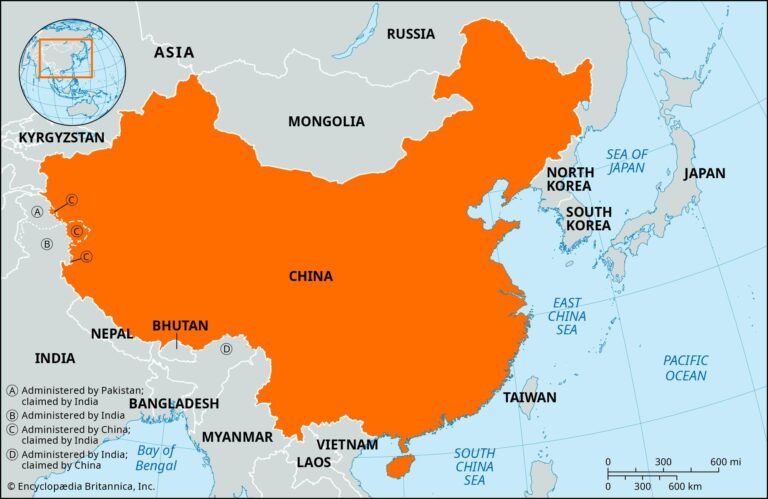China has announced plans to tighten regulations on its electric vehicle (EV) industry in response to escalating “irrational” competition among manufacturers. The move aims to curb destructive pricing strategies and unhealthy rivalries that have emerged as companies vie for market share in the world’s largest EV market. Authorities are signaling a shift toward more sustainable growth and greater industry stability, addressing concerns over overheating and disorderly expansion within the sector.
China Targets Unchecked Rivalry in Electric Vehicle Market to Ensure Sustainable Growth
Amidst rapid expansion in the electric vehicle sector, Chinese authorities have announced a crackdown on what they describe as ‘irrational’ competition, aiming to stabilize the industry’s growth trajectory. Recent moves include heightened regulatory oversight on startups and established manufacturers alike, focusing on curbing aggressive price wars, reducing redundant infrastructure investments, and enforcing stricter financial discipline. These measures seek to weed out unsustainable business practices that could jeopardize long-term market health and environmental goals.
Key factors outlined by regulators include:
- Price manipulation control: Preventing destructive discounting that erodes profits.
- Innovation standards: Encouraging meaningful technological advancements instead of superficial upgrades.
- Market consolidation: Facilitating mergers to eliminate excessive fragmentation.
| Metric | Before Regulation | Target After Regulation |
|---|---|---|
| Number of EV Manufacturers | 300+ | 150-200 |
| Average Industry Profit Margin | 3% | 8% |
| Annual R&D Investment Growth | 12% | 20% |
Government Plans Stricter Oversight to Curb Price Wars and Unfair Practices
In response to escalating concerns over aggressive pricing tactics among electric vehicle (EV) manufacturers, government authorities have announced a robust framework aimed at fostering fair competition in the market. This initiative targets not only the rampant price undercutting but also seeks to clamp down on deceptive marketing and other unfair practices that have disrupted industry stability. Regulators emphasize that while innovation and competitive pricing are essential, unchecked “irrational” competition could ultimately damage consumer trust and long-term development within the sector.
The new regulatory blueprint will encompass several key measures, including intensified scrutiny of price promotions, tighter controls on advertising standards, and stricter enforcement against anti-competitive behavior. Industry analysts expect these steps to encourage sustainable growth and enhance transparency, thereby benefiting both manufacturers and consumers. Below is a summary of the government’s primary focus areas:
- Monitoring Price Fluctuations: Regular audits on sudden and steep price cuts.
- Advertising Compliance: Ensuring truthful and clear product claims.
- Anti-Monopoly Enforcement: Identifying collusion or market manipulation.
- Consumer Protection: Enhancing channels for complaint and dispute resolution.
| Measure | Purpose | Expected Impact |
|---|---|---|
| Price Audits | Prevent reckless discounting | Market stability |
| Advertising Standards | Stop misleading claims | Consumer confidence |
| Anti-Monopoly Checks | Detect unfair collusion | Level playing field |
| Consumer Channels | Address disputes effectively | Improved brand loyalty |
Experts Recommend Balanced Regulation to Foster Innovation and Protect Consumers
Industry specialists emphasize the necessity of a regulatory framework that strikes a harmonious balance between encouraging technological advancement and safeguarding consumer interests. Overregulation risks stifling creativity and slowing down the pace of innovation, while underregulation could lead to market chaos and exploitation. Experts advocate for clear guidelines that promote fair competition without imposing excessive burdens on manufacturers and startups alike.
Key recommendations from analysts include:
- Transparent standards that ensure product quality and safety without hindering rapid iteration.
- Encouragement of collaboration between established corporations and emerging enterprises to accelerate breakthroughs.
- Consumer education initiatives to help buyers make informed choices amid a crowded marketplace.
| Regulatory Focus | Expected Outcome |
|---|---|
| Quality Assurance | Enhanced Consumer Confidence |
| Market Fairness | Reduced Risk of Monopolies |
| Innovation Incentives | Faster Tech Advancement |
Closing Remarks
As China moves to tighten regulations on its burgeoning electric vehicle sector, the government’s commitment to curbing “irrational” competition signals a new phase of industry oversight aimed at fostering sustainable growth. Stakeholders across the market will be closely watching how these measures shape the competitive landscape and influence innovation in one of the world’s fastest-evolving auto industries. Reuters will continue to monitor developments as China seeks to balance rapid expansion with regulatory prudence.




